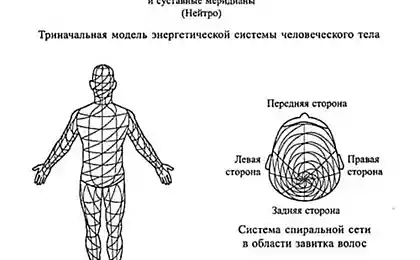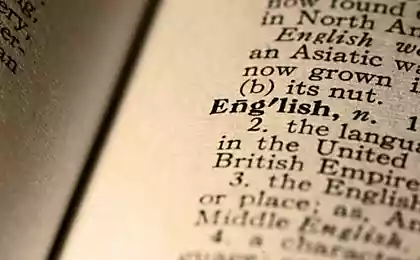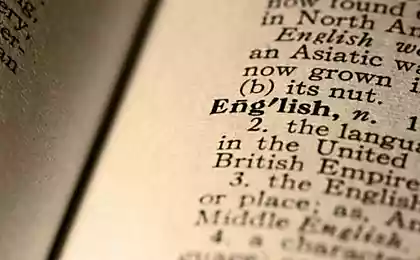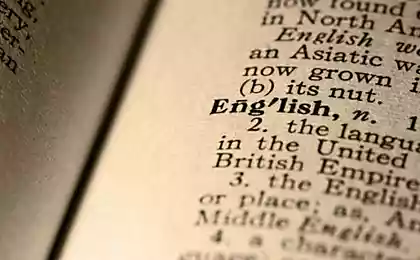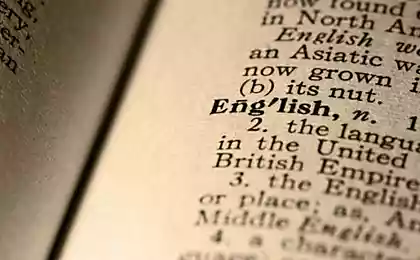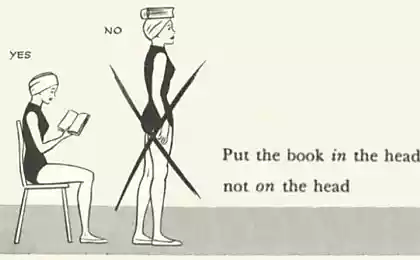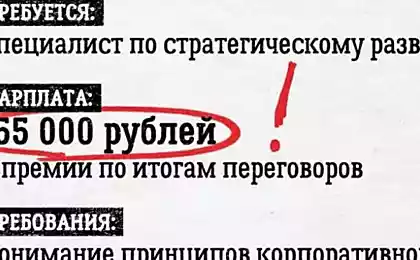423
20 errors in the Russian language, which make nearly all
Everyone knows that good it only makes the man. But for some reason many repeatedly make mistakes during correspondence or personal communication. The site wants to remind the reader about how written and spoken words are most likely to make mistakes.

A birthday to Remember: how to speak and write "birthday"! No "birthday" may not be in sight! In addition, you should not write both words with a capital letter, because the birthday is not a state or an international holiday.
Theirs, Hosni, eeny Poor possessive pronouns! As they do not distort... Right — "his", "her", "them", and all these additions in the form of "deposits" and "-tion" leave for grandmothers from remote villages or for writers who use these words as a literary device.
In General, One of the most common errors is "generally" and "in General" instead of "in General". This word is written separately with a preposition.
Calling the emphasis in the word "calling" falls on the second syllable, not the first. Remember and try not to make this mistake in speaking.
Campaign and company people Often confuse the two words. The word "company" comes from the Latin word "panis" means companions, and "the campaign" is rooted in the word "campus" meaning "field," including the "battlefield". In the old days a campaign called military campaign. To remember the difference in these words is simple: the company decided to run a campaign.
Lay down Here is the perfective verb "to believe", as his imperfect form is "lay". Neither of kakih "lay down" may not be considered. Generally, a verb with the root "lie" is used only with the prefix "at", "at", "for", and so on.
The particle "not" and "nor" When writing the particle "no" expresses negation, and the particle "no" used to reinforce negation and can act as a connecting Union.
To dress and wear There is a simple phrase that will help you remember the correct use of these words: "to Wear clothes, to Dress the Hope." The fact that dress can be just somebody, but to wear something — just for yourself or another person.
Unit Test when writing is the word "one." That is why there is no "one unit" is not and should not be in your letter.
As if the Particle "if" is always written separately. But the hyphen is placed only in that case, if after the "as" are particles of "something "either" and "other."
Whether that it is unlikely that the Particle "if" is always written separately from standing in front of her words. Just remember Bruce Lee and use his name as an effective mnemonic technique.
The phrase "what time is it?" If you asked someone: "what time is it?", then know that you asked the question wrong. Right to ask "what time" or "time", and best of all to formulate the question this way: "Excuse me, would you be so kind and do not tell you what time it is?".
Espresso is Absolutely unacceptable to squeeze in this word the letter "K", receiving the "expresso". And it seems that now on the Express train"Moscow — Saint-Petersburg" there will arrive the Cup of coffee. Also worth remembering that the name "latte" the stress falls on the first syllable, as in "cappuccino" can't have two "h".
To borrow and take These words constantly confused. "Take" means "to borrow", so you cannot hold SOMEONE you can borrow FROM SOMEONE. Would be correct if you ask the other: "Can I borrow some money?" or "Lend me some money, please."
For it is Unacceptable to write that word together, and even with the wrong end. The adverb "within" is indivisible and always spelled with an "e" at the end, but the preposition "in" with the word "for" can be divided dependent word, an example: "in the river".
The future As you would not want to write in the word "Yu" in the end, by analogy with the word "next" should not do this. There is no word "future", but about "the future".
Come and come Often people write perfect form of the verb "to go" as "come", but it is a deprecated form. The correct spelling of "come" because there is suppletive, that is, the formation of various forms of words from different roots.
Keep in mind Some confuse the preposition "due to" that has the value "because of" with "in mind", which is a tandem of a preposition and a noun. The phrase "to mean" always should be written separately.
"Tsya" and "ll" to Check spelling by using the questions "what ©makes" and "what ©do." If there is a soft sign, he will be present in the verb, to answer this question.
Statement with a comma between subject and predicate Between them there can be no comma. The only time to be separated from the predicate with a comma is there, they introductory words allocated by commas on both sides.
via oppps.ru/ixnij-evonyj-eyonyj-odet-i-nadet-klast-i-lozhit.html?utm_campaign=transit&utm_source=mirtesen&utm_medium=news&from=mirtesen

A birthday to Remember: how to speak and write "birthday"! No "birthday" may not be in sight! In addition, you should not write both words with a capital letter, because the birthday is not a state or an international holiday.
Theirs, Hosni, eeny Poor possessive pronouns! As they do not distort... Right — "his", "her", "them", and all these additions in the form of "deposits" and "-tion" leave for grandmothers from remote villages or for writers who use these words as a literary device.
In General, One of the most common errors is "generally" and "in General" instead of "in General". This word is written separately with a preposition.
Calling the emphasis in the word "calling" falls on the second syllable, not the first. Remember and try not to make this mistake in speaking.
Campaign and company people Often confuse the two words. The word "company" comes from the Latin word "panis" means companions, and "the campaign" is rooted in the word "campus" meaning "field," including the "battlefield". In the old days a campaign called military campaign. To remember the difference in these words is simple: the company decided to run a campaign.
Lay down Here is the perfective verb "to believe", as his imperfect form is "lay". Neither of kakih "lay down" may not be considered. Generally, a verb with the root "lie" is used only with the prefix "at", "at", "for", and so on.
The particle "not" and "nor" When writing the particle "no" expresses negation, and the particle "no" used to reinforce negation and can act as a connecting Union.
To dress and wear There is a simple phrase that will help you remember the correct use of these words: "to Wear clothes, to Dress the Hope." The fact that dress can be just somebody, but to wear something — just for yourself or another person.
Unit Test when writing is the word "one." That is why there is no "one unit" is not and should not be in your letter.
As if the Particle "if" is always written separately. But the hyphen is placed only in that case, if after the "as" are particles of "something "either" and "other."
Whether that it is unlikely that the Particle "if" is always written separately from standing in front of her words. Just remember Bruce Lee and use his name as an effective mnemonic technique.
The phrase "what time is it?" If you asked someone: "what time is it?", then know that you asked the question wrong. Right to ask "what time" or "time", and best of all to formulate the question this way: "Excuse me, would you be so kind and do not tell you what time it is?".
Espresso is Absolutely unacceptable to squeeze in this word the letter "K", receiving the "expresso". And it seems that now on the Express train"Moscow — Saint-Petersburg" there will arrive the Cup of coffee. Also worth remembering that the name "latte" the stress falls on the first syllable, as in "cappuccino" can't have two "h".
To borrow and take These words constantly confused. "Take" means "to borrow", so you cannot hold SOMEONE you can borrow FROM SOMEONE. Would be correct if you ask the other: "Can I borrow some money?" or "Lend me some money, please."
For it is Unacceptable to write that word together, and even with the wrong end. The adverb "within" is indivisible and always spelled with an "e" at the end, but the preposition "in" with the word "for" can be divided dependent word, an example: "in the river".
The future As you would not want to write in the word "Yu" in the end, by analogy with the word "next" should not do this. There is no word "future", but about "the future".
Come and come Often people write perfect form of the verb "to go" as "come", but it is a deprecated form. The correct spelling of "come" because there is suppletive, that is, the formation of various forms of words from different roots.
Keep in mind Some confuse the preposition "due to" that has the value "because of" with "in mind", which is a tandem of a preposition and a noun. The phrase "to mean" always should be written separately.
"Tsya" and "ll" to Check spelling by using the questions "what ©makes" and "what ©do." If there is a soft sign, he will be present in the verb, to answer this question.
Statement with a comma between subject and predicate Between them there can be no comma. The only time to be separated from the predicate with a comma is there, they introductory words allocated by commas on both sides.
via oppps.ru/ixnij-evonyj-eyonyj-odet-i-nadet-klast-i-lozhit.html?utm_campaign=transit&utm_source=mirtesen&utm_medium=news&from=mirtesen




